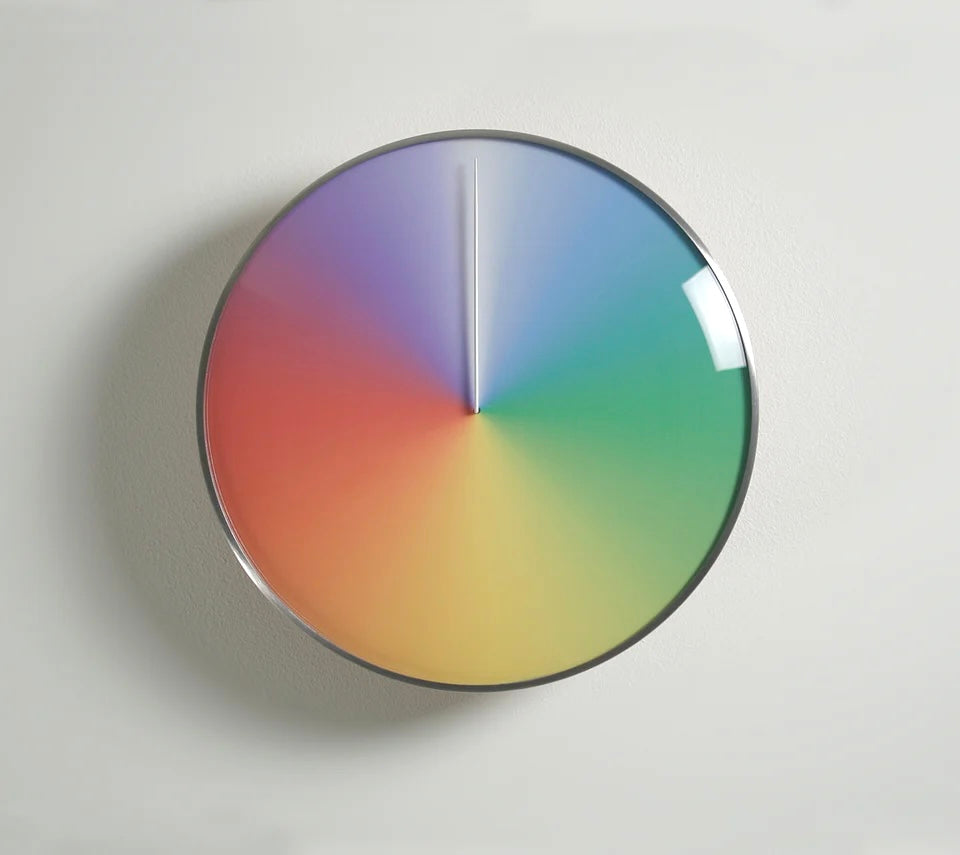The proposition that time is a social construct serves as the basis for a paradigm shift in our relationship with time.
If we acknowledge that our understanding and measurement of time is human-made, it opens the door to reimagining how we perceive and interact with time.
The evolution of timepieces, from sundials to mechanical clocks to digital displays, reflects our continual efforts to measure time more accurately.
Yet, our traditional measurements of time, centered around the 24-hour day, 60-minute hour, and 60-second minute, only tap into one dimension of time—linear time. They don't encompass the broader, cyclical nature of time that is inherent in our natural world.
The potential for innovation lies in expanding our perception of time by introducing new ways of observing and experiencing it. Just as we've adopted linear time as our standard, so too could we incorporate additional perspectives on time into our daily lives. By creating timepieces that reflect the cyclical, rhythmic nature of time, as seen in natural phenomena like the changing of seasons or the lunar cycle, we introduce ourselves to new dimensions of time.
Timepieces like The Present offer a supplemental view of time, reflecting the cycles of the day, the moon, and the year. This shift in perspective from linear to cyclical time is not about replacing our existing clocks but about complimenting them, providing a more holistic view of time. In doing so, we metaphorically—and crucially—literally give ourselves more time.
But the impact of this transformation extends beyond the individual. By changing our perception of time, we change our interaction with our surroundings, leading to a more balanced lifestyle. This shift creates a ripple effect, influencing societal norms and values and shaping the future. As more people embrace this expanded view of time, future generations will be born into a world already familiar with this perspective. They will inherently have "more time" in their lives as they naturally perceive and experience time in a more multidimensional way.
In a world often described as 'time-poor,' the notion of creating more time may seem utopian. But if we consider time as a social construct, it becomes plausible. By reimagining time, we can, indeed, create more time.
Yet, our traditional measurements of time, centered around the 24-hour day, 60-minute hour, and 60-second minute, only tap into one dimension of time—linear time. They don't encompass the broader, cyclical nature of time that is inherent in our natural world.
The potential for innovation lies in expanding our perception of time by introducing new ways of observing and experiencing it. Just as we've adopted linear time as our standard, so too could we incorporate additional perspectives on time into our daily lives. By creating timepieces that reflect the cyclical, rhythmic nature of time, as seen in natural phenomena like the changing of seasons or the lunar cycle, we introduce ourselves to new dimensions of time.
Timepieces like The Present offer a supplemental view of time, reflecting the cycles of the day, the moon, and the year. This shift in perspective from linear to cyclical time is not about replacing our existing clocks but about complimenting them, providing a more holistic view of time. In doing so, we metaphorically—and crucially—literally give ourselves more time.
But the impact of this transformation extends beyond the individual. By changing our perception of time, we change our interaction with our surroundings, leading to a more balanced lifestyle. This shift creates a ripple effect, influencing societal norms and values and shaping the future. As more people embrace this expanded view of time, future generations will be born into a world already familiar with this perspective. They will inherently have "more time" in their lives as they naturally perceive and experience time in a more multidimensional way.
In a world often described as 'time-poor,' the notion of creating more time may seem utopian. But if we consider time as a social construct, it becomes plausible. By reimagining time, we can, indeed, create more time.
This shift will not only enhance our individual lives but, in the long run, contribute to a more balanced society, grounded in the fundamental natural rhythms of our habitat. The potential is vast: all we need to do is give ourselves the time to explore it.

Leave a comment: